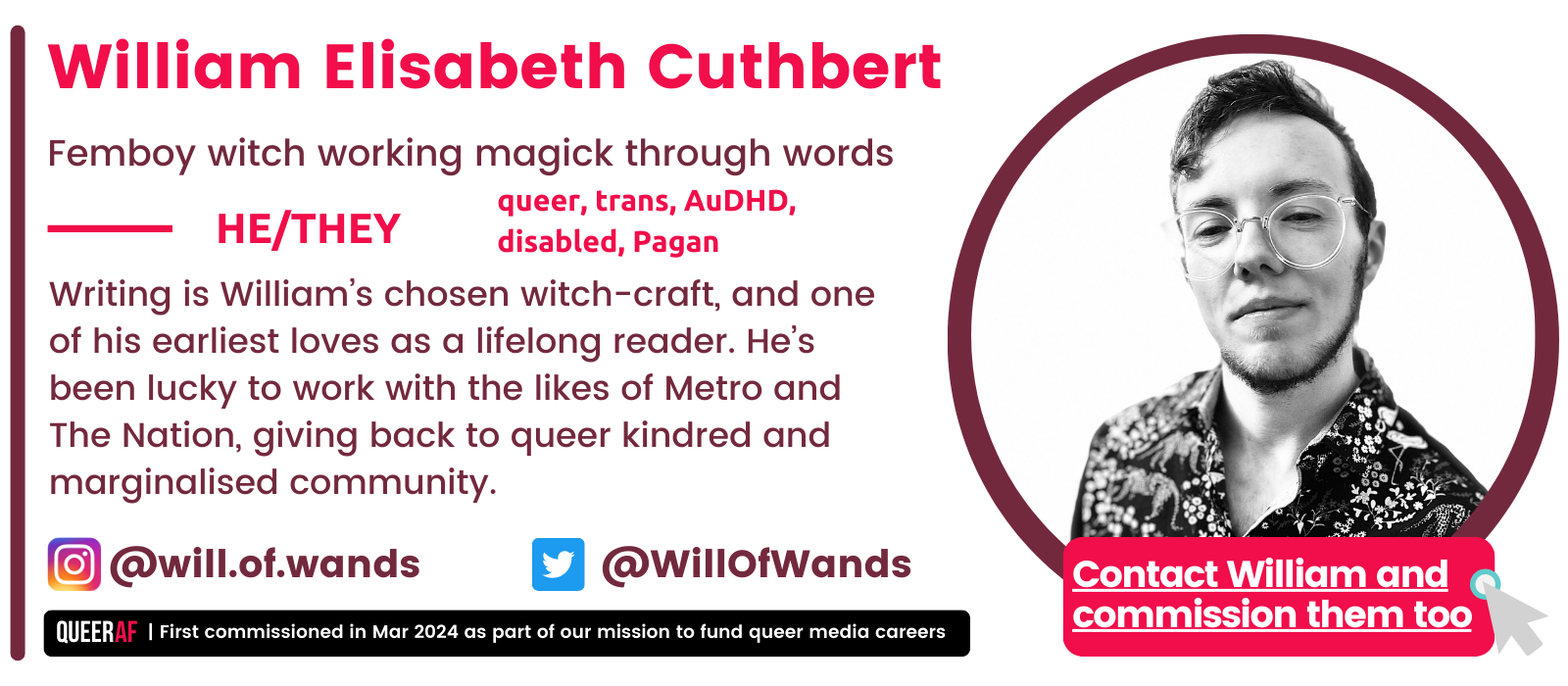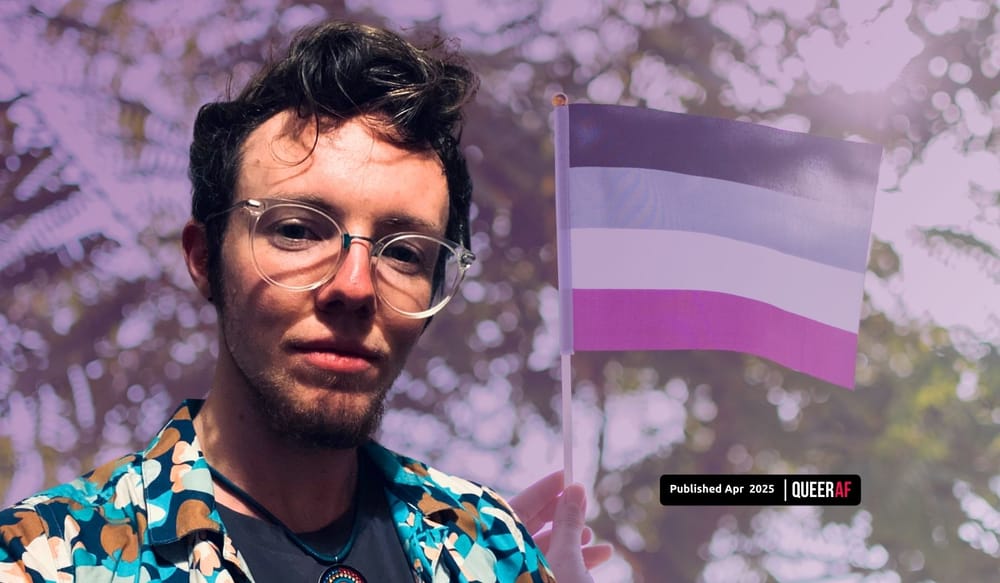
Not everything that gives me gender euphoria (or dysphoria) matches what everyone would expect from a transmasculine person.
That shouldn’t constrict my self-expression. Yet responses to the trans ‘debate’ continue to presume a fixed gender binary, like the letter M or F on a piece of ID.
Never pushed by family towards certain clothes or keeping my hair long as a kid, I enjoyed typical ‘girl stuff’, fairies and fantasy romances, and I still do.
I’d try on new dresses with a thrill at the different colours and textures. I’m autistic and easily overwhelmed by social situations. Still, I found the structured human touch at salons and make-up counters soothing and empowering.
I understand now that expressing femininity this way was part of enjoying my softness and vulnerability, which isn’t a weakness, with others. But, as the current climate grows more hostile to Trans+ people, now there’s only fear.
The backstory of the trans guy forced to dress ‘like a girl’ is valid for some. One famous example is Elliot Page, who turned down a period drama role because he would have to wear dresses and wigs.
But the media’s thirst for clickable extremity and tragedy has manufactured a myth that the same thirst for the binary applies to all of us.
Such restrictive narratives deny the humanity of being gender non-conforming. We see this show up in the disapproval towards women and femmes who aren’t feminine enough by white Western standards, whether trans or not. Indeed, so-called ‘bathroom bills’ purport to protect women but have caused a culture of insisting women conform to stereotypes to use single-sex spaces.
This binary thinking infects the lives of Trans+ people, too, despite and perhaps because of our growing visibility.
It held me back from becoming aware of my own identity until I was almost 30.
Even then, I felt a pull to conform to what’s common within my community, getting rid of most of my feminine clothes in a way I’ve come to realise wasn’t for me.
My trans journey so far has been one of accepting my various gendered aspects. I first came out as non-binary, unconsciously afraid of facing my masculinity.
Now, I’m shifting towards non-binary expression and self-identification again after a period of hard leaning towards manliness. Out of excitement and a degree of honesty, but also for security.
As intimidating as being trans is, I understand there’s some protection in presenting within the binary. Transmasculine folks are also further from the outrage spotlight trans women are due to our systemic erasure.
Close to sacrificing that ironic protection, knowing I’ll confuse and unsettle in the skirts and makeup I want to wear, I can’t commit to my queerness in public yet.
Having been accepted and experienced passing as a man, I dread family thinking I’m fickle, deceptive or ‘always changing my mind’ – let alone what strangers will see.
Society needs to accept trans people’s identities as merely the starting point for our expression, no different to how some cis people disrupt gender norms.
For now, I wear lacy socks under skinny jeans as a compromise, a little something that feels like the real me.
It won’t be enough forever. But I’m thankful I can be myself in hidden ways as I build confidence towards presenting and dressing in a comfortable and true way.

Get the Queer Gaze in your inbox each week with our free weekly newsletter or pitch to write an edition for us now.
QueerAF and here to change the media
Queer lives are inherently political.
Clampdowns by the Art Council on political art, the social media platform formerly known as Twitter and now Meta's Instagram and Threads on news and politics point to a bigger picture.
Clearly, protecting profits are the only thing that’s important to politicians, media and now some of the UK's most respected institutions.
We're a not-for-profit exactly for this reason. We raise funds so we can reinvest it into content that we know counts - not for clicks.
Behind the scenes of this weekly newsletter, we're also working across the media as an advocacy group to change the way the newsroom looks, and acts - to make the country better for all LGBTQIA+ people.
In the words of respected Trans+ journalist Jess O'Thomson, QueerAF is:
"One of the best publications doing queer journalism I know of"
If you can, consider supporting us. You can join the community of QueerAF members from just £4 a month.











